
Voters again endorse Swiss government’s pandemic policy
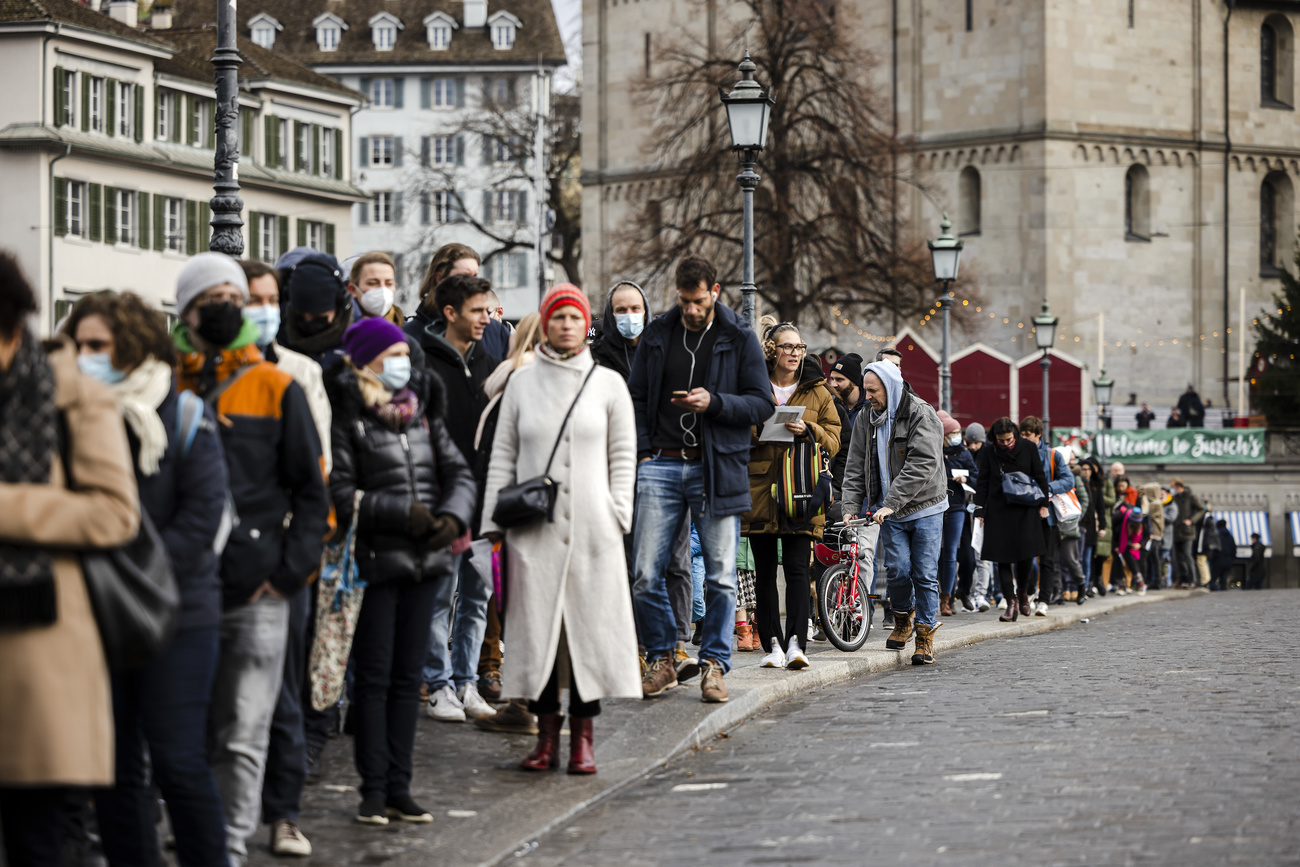
A clear majority has backed the government’s coronavirus policy after voting on the issue for the second time this year.
In June, 60% approved the initial text of the Covid law, the legal framework for the financial and health measures taken by government to deal with the pandemic. Five months later, an even bigger number has now supported a series of amendments to the law, outlining more financial aid as well as the legal basis for the hotly-debated Covid certificate.
With one of the highest turnouts in decades – almost 66% – 24 of the country’s 26 cantons said “yes”. Only Schwyz, who also rejected the law in June, and small Appenzell Inner Rhoden went against the trend.
“Ultimately it’s another confirmation of the government’s position”, Urs Bieri of gfs.bern told SRF radio on Sunday. Bieri said that while the campaign was more heated than in June, voters decided on the basis of their “everyday experience”. Citizens’ opinions were based on their views of the utility of vaccination and the certificate and not on the basis of which political groups are saying what, he said.
At a press conference in Bern, Interior Minister Alain Berset said the result would enable the government to “continue its pandemic efforts” – particularly its support for struggling individuals and businesses. He also referred to the “nasty” prospect raised by the new Omicron variant, and the current tense health situation in Switzerland.
On Friday, 8,032 new Covid-19 cases were reported in the country, 50% higher than the level early last week. Numbers are currently doubling every two weeks.

More
Coronavirus: the situation in Switzerland
However, Berset also praised the outcome as a sign that “democracy works”. Referring to the aggressive tones and threats witnessed during the campaign, he said that democratic debates can and should be “lively”, but added there were limits. “We have to be able to protest. But there is also certain form in which we can demonstrate in a Swiss way,” he said.
He called for “respecting decisions taken and reuniting after a decision, even if we were not in agreement with it”.
Police on the alert
More so than in June, the campaign this time was marked by loud and sometimes violent protests, mostly aimed at what opponents called a “discriminatory” Covid certificate. On Sunday, police took the unprecedented step of cordoning off the area around parliament buildings to prevent demonstrations called by some protestors online.
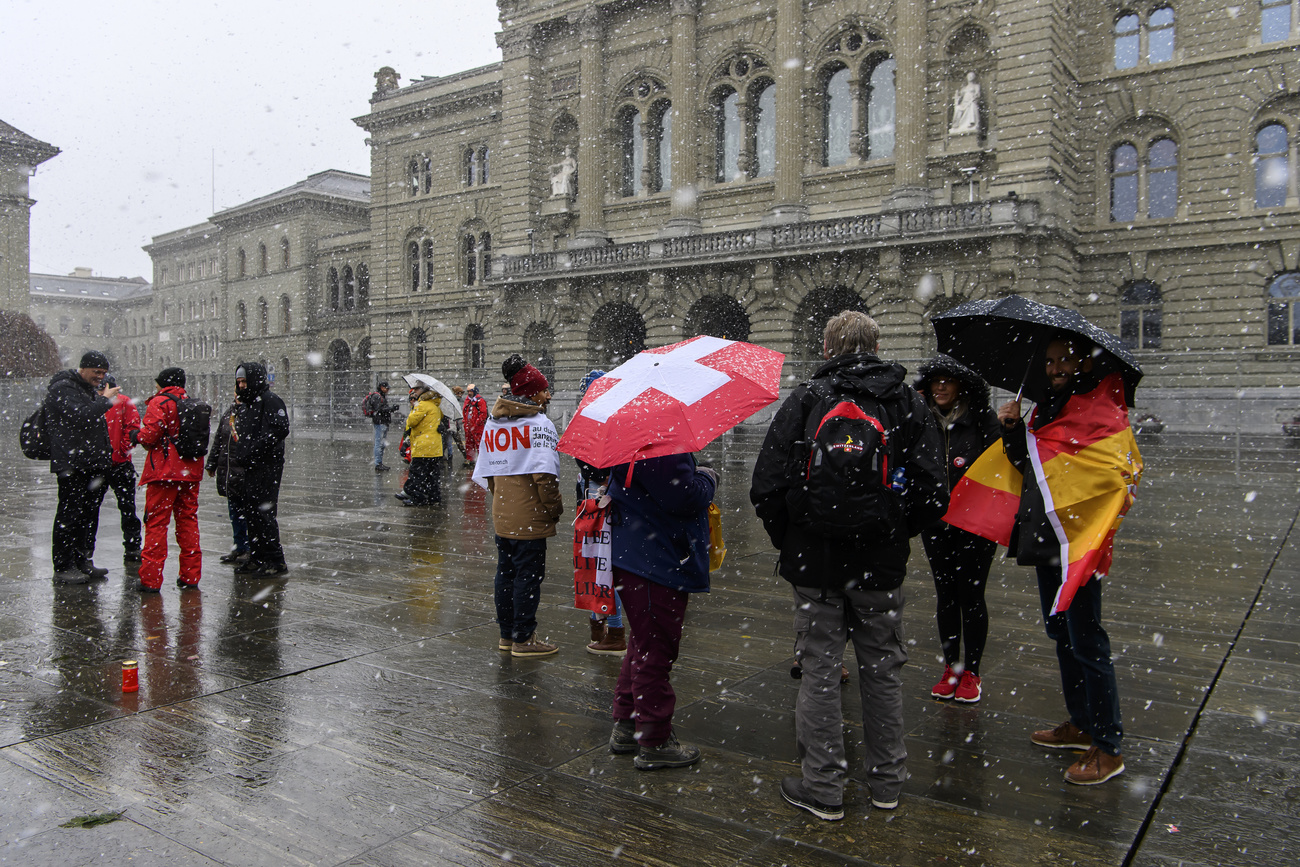
However, the final results suggest clearly suggest that a majority of voters were more worried about the health situation than the highly visible and loud protests of opponents.
Centre party politician Marianne Binder, speaking on behalf of the “yes” camp, said that with daily Covid cases rising rapidly, and the new Omicron variant causing worldwide concern, voters had chosen the “pragmatic” option.
The result sanctions the “moderate” Swiss policy – avoiding lockdowns, keeping society and the economy moving as much as possible – for dealing with Covid-19, added Isabelle Moret from the Radical-Liberal party. She said it was now important for both sides in a divisive campaign to unite and “get through this crisis together”.
No regrets
The “no” camp, meanwhile, largely said that while it would accept the outcome, it would not change its stance, based on opposition to the Covid certificate and to what it sees as overweening government power more generally.
“The democratic process has been respected but the law is still unconstitutional,” claimed Michelle Cailler of the “Friends of the Constitution”, one of several groups who gathered 187,000 signatures to challenge the law (50,000 are needed) earlier this year.
Josef Ender, spokesman for a group of Covid opponents from central Switzerland, also said the high turnout “shows it was the right decision to call the referendum”. He told Swiss public broadcaster SRF that the result was partly the result of the tactics of the government, who he claimed held off from imposing new restrictions in recent weeks in order not to antagonise voters.
Although the government has called the current health situation “critical”, it has avoided following neighbouring countries like Austria and Germany which imposed stricter measures in recent weeks.
However, the government should not take the result on Sunday as a “blank cheque” to now implement whatever measures it wants, added Céline Amaudruz of the right-wing People’s Party – the only major political group to have campaigned against the law. Any further action had to be “coherent and measured”, she said.
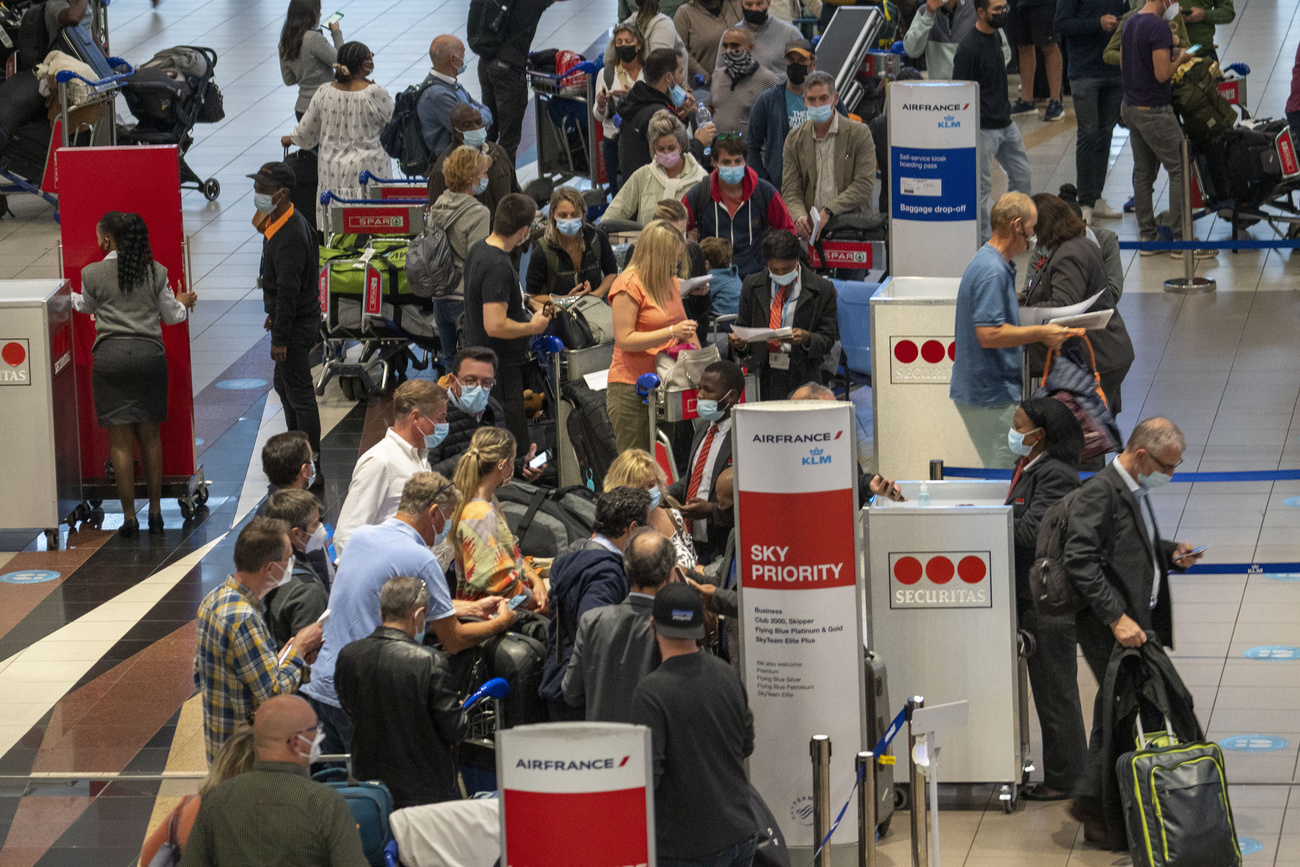
More
Switzerland imposes entry restrictions to combat new Covid variant
Social divisions
Whether the result will manage to calm down the tensions that have arisen in Switzerland around the virus and the divisive certificate remains to be seen.
The tension reflects a heated vote campaign, full of aggressive statements and protests which occasionally turned violent. Michael Hermann, whose Sotomo institute has carried out regular Covid surveys for the Swiss Broadcasting Corporation (SWI swissinfo.ch’s parent company), told the Bund newspaper before the vote that he had “never experienced such a deep societal divide”.
Entrenched positions were also seen in opinion polls in the run-up to the vote: while a survey by gfs.bern on November 7 showed 61% in favour of the law and 38% against, just 1% were still “undecided” – a much smaller amount than usual, and an indication that people made up their minds some time ago already.
Ultimately, the most important factor for a typical voter is whether he or she was vaccinated against Covid, said gfs.bern analyst Martina Mousson before the vote. In Switzerland, some 67% of the population is fully vaccinated; this figure is estimated at around 70% for eligible voters.
Covid law/certificate 62% Yes 38%No
Working conditions for nurses 61% Yes 39% No
Random selection of federal judges 31.9% Yes 68.1% No
Turnout: 65.7%
More

In compliance with the JTI standards
More: SWI swissinfo.ch certified by the Journalism Trust Initiative




































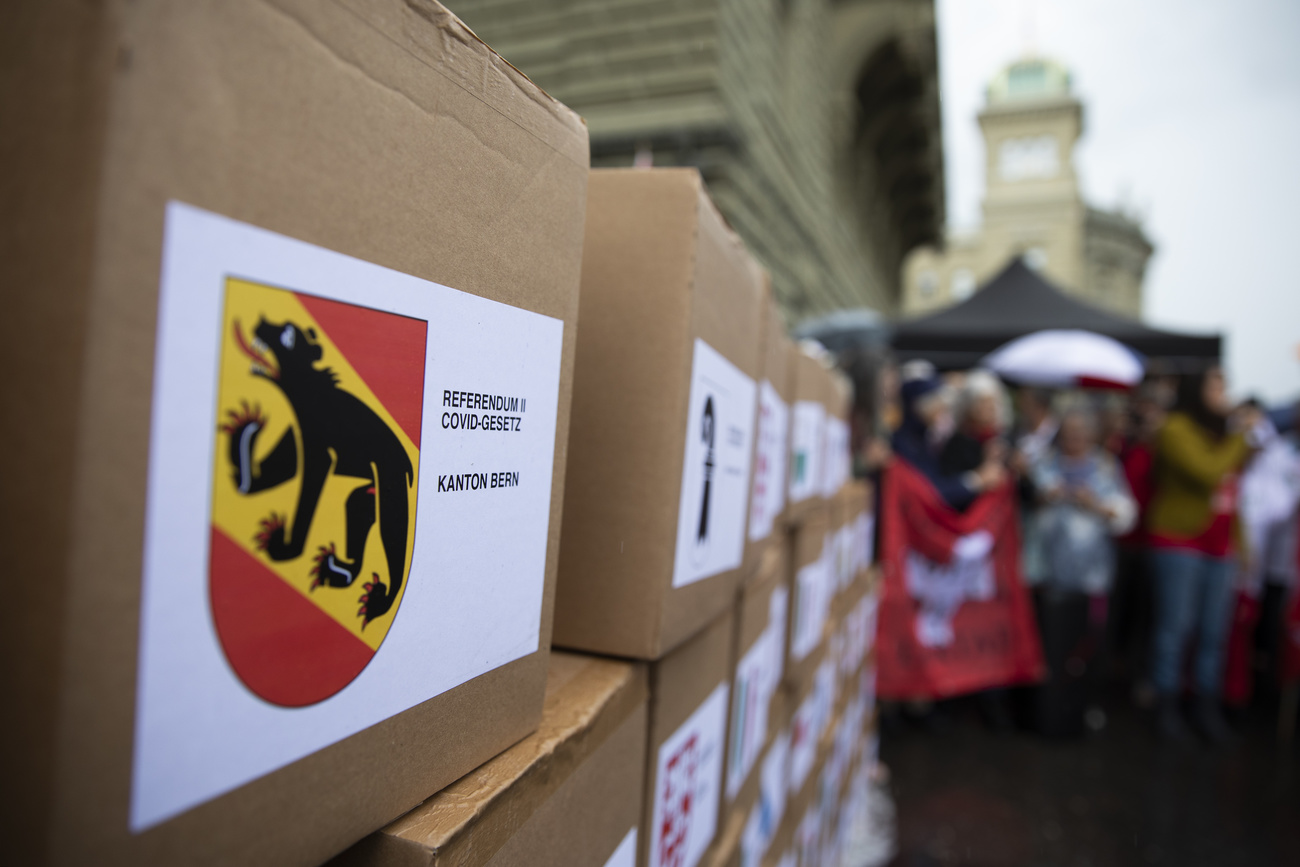

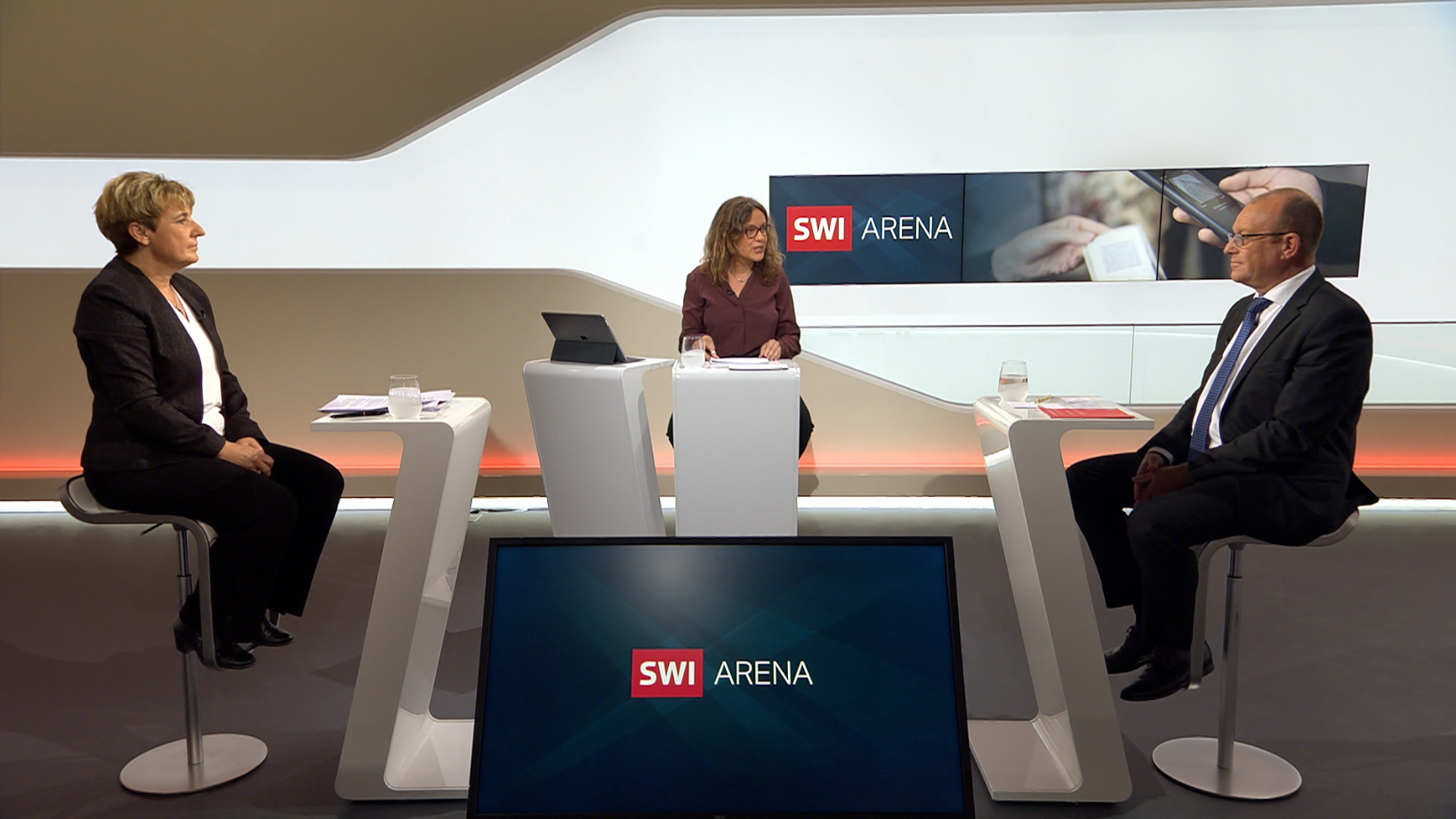
You can find an overview of ongoing debates with our journalists here . Please join us!
If you want to start a conversation about a topic raised in this article or want to report factual errors, email us at english@swissinfo.ch.